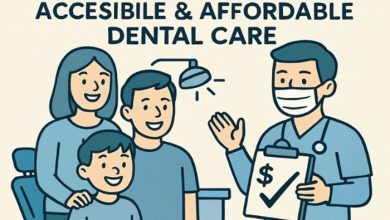
Motorcycles offer an unmatched sense of freedom and adventure, but that freedom also comes with heightened risk. Unlike car drivers, riders lack the physical protection of a vehicle body, airbags, or seatbelts.
When accidents occur, the results can be devastating, often leaving victims with severe or life-changing injuries. Understanding these common injuries can help riders take precautions and seek the right medical and legal support after a crash.
The Importance of Legal Help After a Motorcycle Accident
After an accident, medical recovery is the top priority, but it’s equally vital to protect your legal rights. Motorcycle crashes often result from another driver’s negligence, road defects, or vehicle malfunctions. Consulting a skilled motorcycle accident attorney ensures that you understand your legal options, gather the necessary evidence, and pursue fair compensation for medical expenses, lost income, and pain and suffering.
1. Head and Brain Injuries
Head trauma is among the most serious consequences of motorcycle accidents. Even when wearing a helmet, riders can sustain concussions, skull fractures, or traumatic brain injuries (TBI). These injuries can lead to long-term cognitive issues, memory loss, or even permanent disability. Immediate medical evaluation is critical, as brain injuries often show delayed symptoms.
2. Road Rash and Skin Abrasions
Road rash occurs when a rider’s skin scrapes against the pavement during impact. While it may sound minor, severe road rash can involve deep tissue damage, nerve exposure, and risk of infection.
Protective gear like armored jackets, gloves, and reinforced pants can significantly reduce the severity of these abrasions. Proper cleaning and medical care are essential to prevent long-term scarring or complications.
3. Fractures and Broken Bones
The force of a motorcycle crash often throws riders from their bikes, leading to broken arms, legs, ribs, or collarbones. Wrist and forearm fractures are especially common, as riders instinctively use their hands to brace for impact. Depending on the severity, victims may require surgery, metal implants, and lengthy physical therapy to regain mobility and strength.
4. Spinal Cord Injuries
In high-impact collisions, spinal cord injuries can cause partial or complete paralysis. Damage to the neck or back can lead to chronic pain, loss of sensation, or limited motor control.
These injuries not only affect a rider’s physical health but also their emotional well-being and independence. Long-term care, rehabilitation, and adaptive equipment are often required.
5. Internal Injuries
Motorcycle accidents can also cause internal bleeding or organ damage, even when there are no visible wounds. The impact of a collision can injure the liver, spleen, lungs, or kidneys. Because internal injuries are not always immediately noticeable, it’s important for victims to undergo a thorough medical examination right after the crash, regardless of how they feel initially.
6. Emotional and Psychological Trauma
Beyond physical injuries, many motorcycle accident victims experience anxiety, depression, or post-traumatic stress disorder (PTSD). The fear of riding again or flashbacks to the accident can significantly affect daily life. Professional counseling and emotional support can play a crucial role in recovery and long-term mental health.
Taking Steps Toward Recovery
Recovering from a motorcycle accident often requires patience, determination, and the right support system. Medical treatment, physical therapy, and legal assistance can help victims regain control over their lives. An experienced attorney can ensure that negligent parties are held accountable and that victims receive the compensation needed to move forward.
Key Takeaways
- Motorcycle riders face a higher risk of severe injuries compared to car drivers.
- Common injuries include head trauma, fractures, spinal cord damage, and road rash.
- Always seek immediate medical attention, even if symptoms seem minor.
- A motorcycle accident attorney can help protect your rights and maximize compensation.
- Emotional recovery is just as important as physical healing after a crash.




